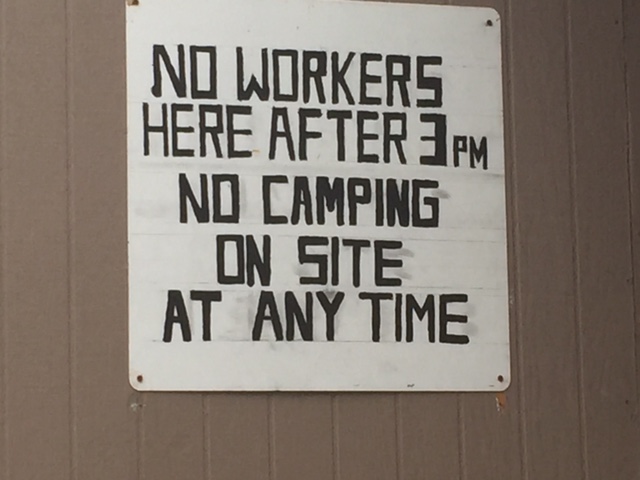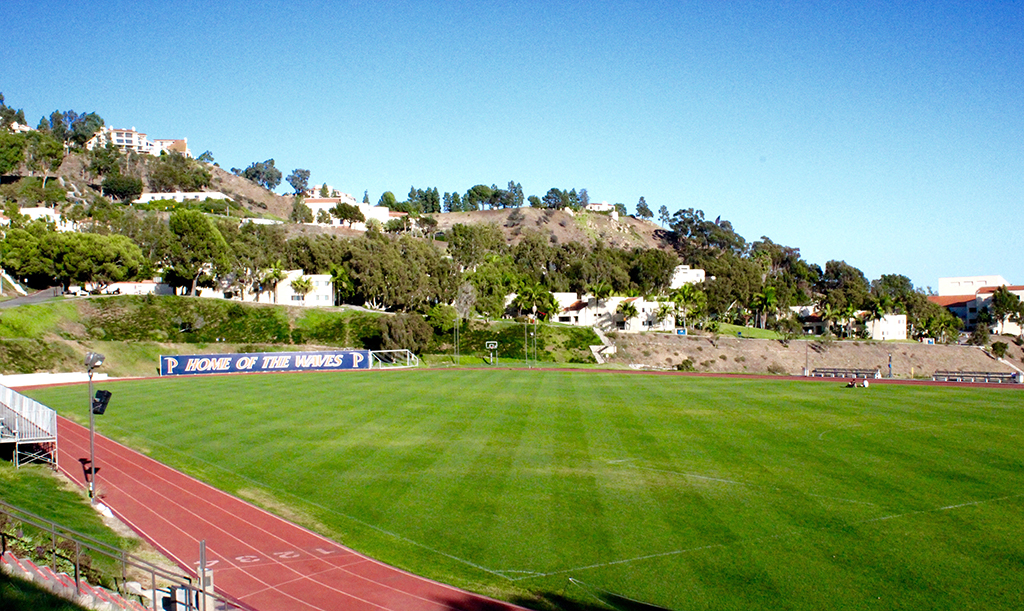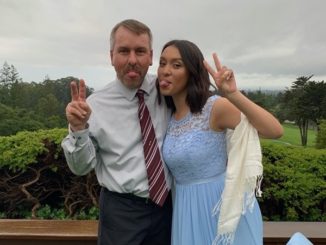
It’s hard work, and we need to recognize all the hard work they put into bringing us the fruits and veggies and the work they do and they deserve our respect and the right to live in dignity. –Alex Guild Migrant Health Policy Analyst for Farmworker Justice
In addition to many farmworkers’ struggle with low wages, living conditions and unstable work environments, many must also combat prejudice they experience from the surrounding communities.
“I think prejudice and discrimination is a huge challenge for immigrants in the U.S., farmworkers, specifically,” said Alexis Guild, the migrant health policy analyst for Farmworker Justice. “I think it prevents them from accessing services, for example a health center or even just going to the bank or grocery store.”
Roberta “Bobbi” Ryder, president and CEO of the National Center for Farmworker Health, said anti-immigrant prejudice is largely caused by a “popular myth” and assumption that most Hispanics are undocumented, “regardless of whether they’ve been here generations before my family. It plays a huge role and varies in state and region. There are some places where it’s more overt and blatant.”
Ryder said she recognizes that she is lucky to be a first-generation Scottish American instead of Mexican-American.
“The privileges and opportunities I’ve had are often denied to individuals that I’ve worked with and continue to work with. … It works to my advantage, which is an unfair advantage,” Ryder said. “People have to overcome so much in way of prejudice. The links of our society are only as strong as the weakest link, and they’re not all people of color.”
Ryder said she believes she would’ve experienced a much harder time coming from nothing if she also had to fight prejudice in addition to poverty.
“Personally, I feel like I was raised in the church and we’re all alike and I believe Jesus loves all the little children,” Ryder said. “It’s a fundamental belief I was taught as a child.”
“We can be un-Christian about it, we can be cruel, we can be miserly about it, or we can try and be thoughtful and create a law that we can uphold in good faith.”
Pepperdine University Professor of Hispanic Studies George Carlsen discussed the need for an “immigration overhaul” in which the laws match the nation’s immigration need. (Video by Brandi Saldierna)
Guild said she believes it can be very difficult for new communities to be embraced by American culture.
“When the Jews and Italians came, there was a lot of discrimination,” Guild said. “I think it might be that because Latinos tend to really hold onto their culture and language, it may threaten some people here in the U.S. who may feel that our culture is under threat because they’re not assimilating like they’re supposed to.”
Sara Quandt, professor of epidemiology and prevention at Wake Forest University, said she finds it interesting that a country of immigrants is so anti-immigration and doesn’t care about the lives of farmworkers.
“It’s always interesting that people care about conditions of animals on farms and the environment, and it seems to me that people should also care about the workers that produce the food,” Quandt said. “There have been some studies that looked at farmworkers that pass contaminations on to food products, and if you have workers working in insanitary conditions you get contaminated food, and I think on a practical level, that’s something people should care about.”
Farmworkers are the people who feed the nation, they harvest the fruits and vegetables Americans eat every day, and it’s because of their labor that produce is as cheap as it is, Guild said.
“Farmworkers are somewhat an invisible community within the U.S.,” Guild said. “Most of us go to our grocery store and see the strawberries and apples, and we don’t think about what work went into getting that there, and I think it’s important. There’s a lot of talk about food being organic, and it’s important to farmworkers as well because of pesticides they’re exposed to, as well as their families, because of residual pesticides being tracked into their homes. People don’t think enough about the people who bring and do the work, but without them we wouldn’t have the produce we have.”
“They’re the piece that people often don’t pay attention to, they don’t see … A lot of people tend to overlook the people whose labor is the backbone of that industry.”
John Krist, CEO of the nonprofit Farm Bureau, explains the invisibility of farmworkers and the impact of affordable housing. (Video by Brandi Saldierna)
Guild, with Farmworker Justice, said there is bias even among immigrants against indigenous farmworkers.
“They’re at the bottom of the cultural hierarchy within the country, and when they come to the U.S. they’re discriminated against from white Americans and other Latinos because indigenous populations are seen differently than the general Latino population,” Guild said. “For the most part they speak Spanish as a second language and that creates an additional barrier since they have a unique culture and beliefs that can affect how they access medical care. Sometimes the prejudices against indigenous communities and their beliefs can prevent these workers from accessing services, but within the field the indigenous tend to have the hardest and lowest paying jobs because of the hierarchy.”
“I don’t doubt that still there is a lot of ignorance … but at least we’re making a change in Ventura County.”
Executive Director of Micop Arcenio Lopez recounts a story that displays the community’s lack of knowledge about the immigrant community, though he acknowledges circumstances are improving. (Video by Brandi Saldierna)



